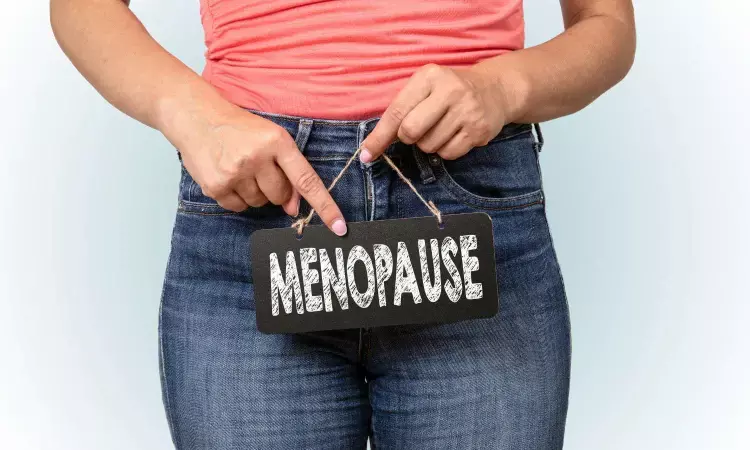- Home
- Medical news & Guidelines
- Anesthesiology
- Cardiology and CTVS
- Critical Care
- Dentistry
- Dermatology
- Diabetes and Endocrinology
- ENT
- Gastroenterology
- Medicine
- Nephrology
- Neurology
- Obstretics-Gynaecology
- Oncology
- Ophthalmology
- Orthopaedics
- Pediatrics-Neonatology
- Psychiatry
- Pulmonology
- Radiology
- Surgery
- Urology
- Laboratory Medicine
- Diet
- Nursing
- Paramedical
- Physiotherapy
- Health news
- Fact Check
- Bone Health Fact Check
- Brain Health Fact Check
- Cancer Related Fact Check
- Child Care Fact Check
- Dental and oral health fact check
- Diabetes and metabolic health fact check
- Diet and Nutrition Fact Check
- Eye and ENT Care Fact Check
- Fitness fact check
- Gut health fact check
- Heart health fact check
- Kidney health fact check
- Medical education fact check
- Men's health fact check
- Respiratory fact check
- Skin and hair care fact check
- Vaccine and Immunization fact check
- Women's health fact check
- AYUSH
- State News
- Andaman and Nicobar Islands
- Andhra Pradesh
- Arunachal Pradesh
- Assam
- Bihar
- Chandigarh
- Chattisgarh
- Dadra and Nagar Haveli
- Daman and Diu
- Delhi
- Goa
- Gujarat
- Haryana
- Himachal Pradesh
- Jammu & Kashmir
- Jharkhand
- Karnataka
- Kerala
- Ladakh
- Lakshadweep
- Madhya Pradesh
- Maharashtra
- Manipur
- Meghalaya
- Mizoram
- Nagaland
- Odisha
- Puducherry
- Punjab
- Rajasthan
- Sikkim
- Tamil Nadu
- Telangana
- Tripura
- Uttar Pradesh
- Uttrakhand
- West Bengal
- Medical Education
- Industry
Does laser therapy improve outcomes in genitourinary syndrome of menopause?

Twelve weeks following laser application, the therapeutic response in genitourinary syndrome of menopause (GSM)-afflicted ladies was on par with bogus laser treatments, says an article published in The International Journal of obstetrics and Gynecology.
Genitourinary syndrome of the menopause, which affects 10% to 40% of postmenopausal women and rises to 66% by the age of 75, is characterized by symptoms and signs related to changes in the lower urinary and urogenital tracts after the menopause. However, only 25% of these women seek medical attention. In order to determine if CO2 laser therapy is more successful than sham application in alleviating the most bothersome symptom (MBS) in women with genitourinary syndrome of menopause, Ann-Sophie Page and colleagues conducted this study.
A tertiary center in Belgium conducted this sham-controlled, single-center, randomised, and double-blind experiment. For this study, 60 women with mild to severe GSM symptoms were chosen. All individuals finally got three treatments of laser followed by three applications of sham, either in that order or the opposite. The participant-reported change in MBS severity at 12 weeks was the main result. At 18 months following the commencement of the therapy, secondary outcomes comprised subjective (patient satisfaction, urine function, and sexual function) and objective (pH, Vaginal Health Index Score, in vivo microscopy) assessments measuring the treatment's short- and long-term effects. At each visit, adverse occurrences were noted.
The key findings of this study were:
The MBS severity score dropped in women who received laser treatment from 2.86±0.35 to 2.17±0.93 (23.60%; 95% CI 36.10% to 11.10%) as opposed to 2.90±0.31 to 2.52±0.78 (13.20%; 95% CI 22.70% to 3.73%) in women who received sham treatments (p = 0.13).
Up to 18 months, no significant adverse effects were documented.
Reference:
Page, A., Verbakel, J. Y., Verhaeghe, J., Latul, Y. P., Housmans, S., & Deprest, J. (2022). Laser versus sham for genitourinary syndrome of menopause: A randomised controlled trial. In BJOG: An International Journal of Obstetrics & Gynaecology (Vol. 130, Issue 3, pp. 312–319). Wiley. https://doi.org/10.1111/1471-0528.17335
Neuroscience Masters graduate
Jacinthlyn Sylvia, a Neuroscience Master's graduate from Chennai has worked extensively in deciphering the neurobiology of cognition and motor control in aging. She also has spread-out exposure to Neurosurgery from her Bachelor’s. She is currently involved in active Neuro-Oncology research. She is an upcoming neuroscientist with a fiery passion for writing. Her news cover at Medical Dialogues feature recent discoveries and updates from the healthcare and biomedical research fields. She can be reached at editorial@medicaldialogues.in
Dr Kamal Kant Kohli-MBBS, DTCD- a chest specialist with more than 30 years of practice and a flair for writing clinical articles, Dr Kamal Kant Kohli joined Medical Dialogues as a Chief Editor of Medical News. Besides writing articles, as an editor, he proofreads and verifies all the medical content published on Medical Dialogues including those coming from journals, studies,medical conferences,guidelines etc. Email: drkohli@medicaldialogues.in. Contact no. 011-43720751


